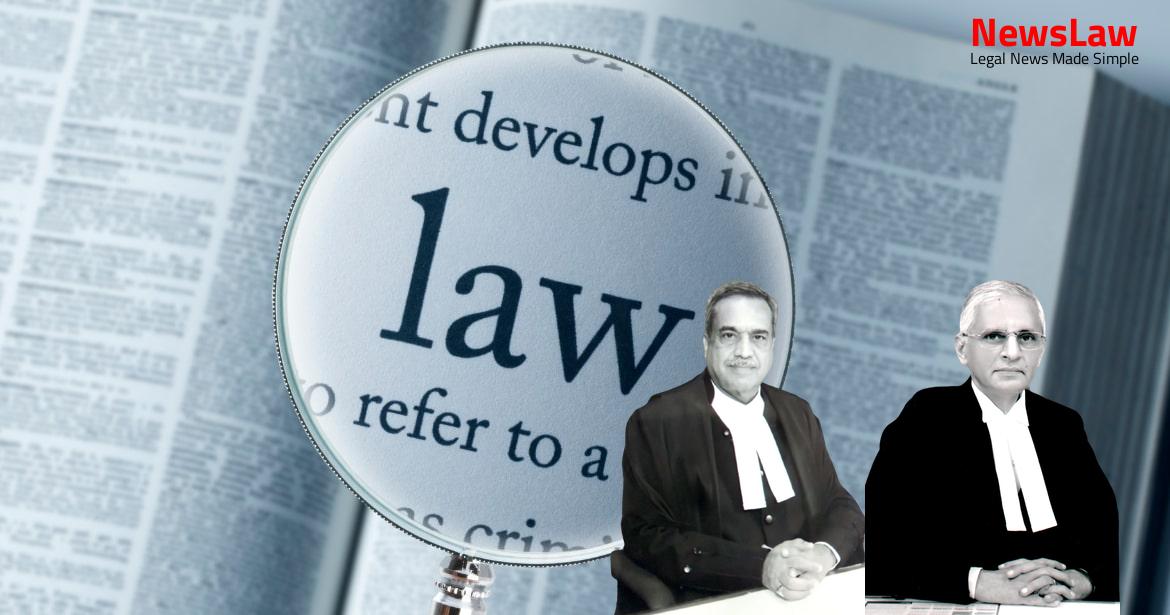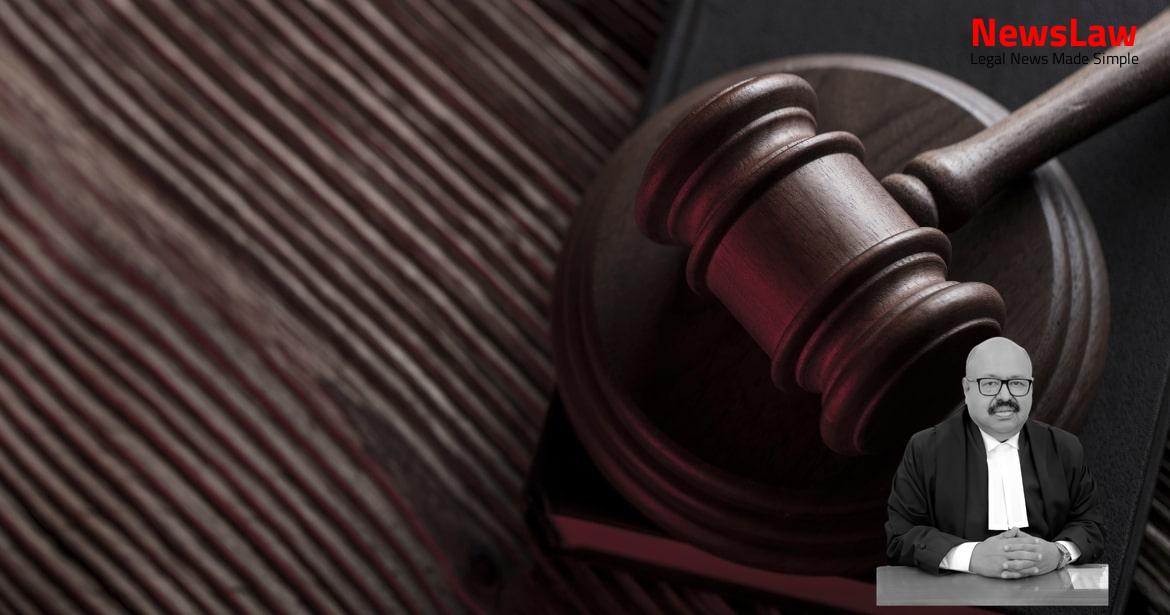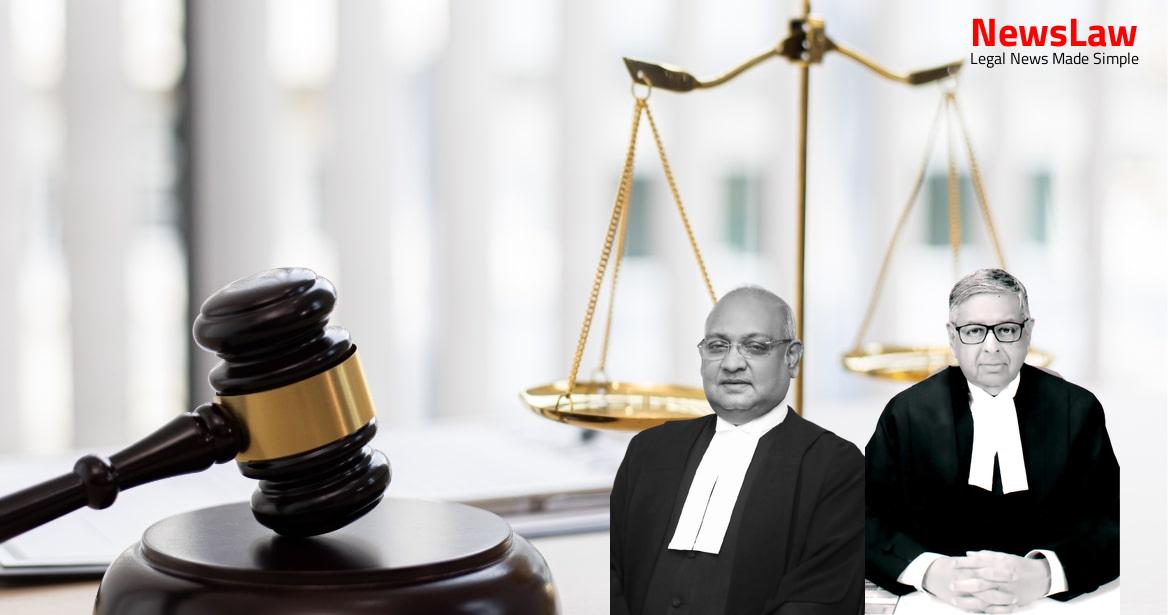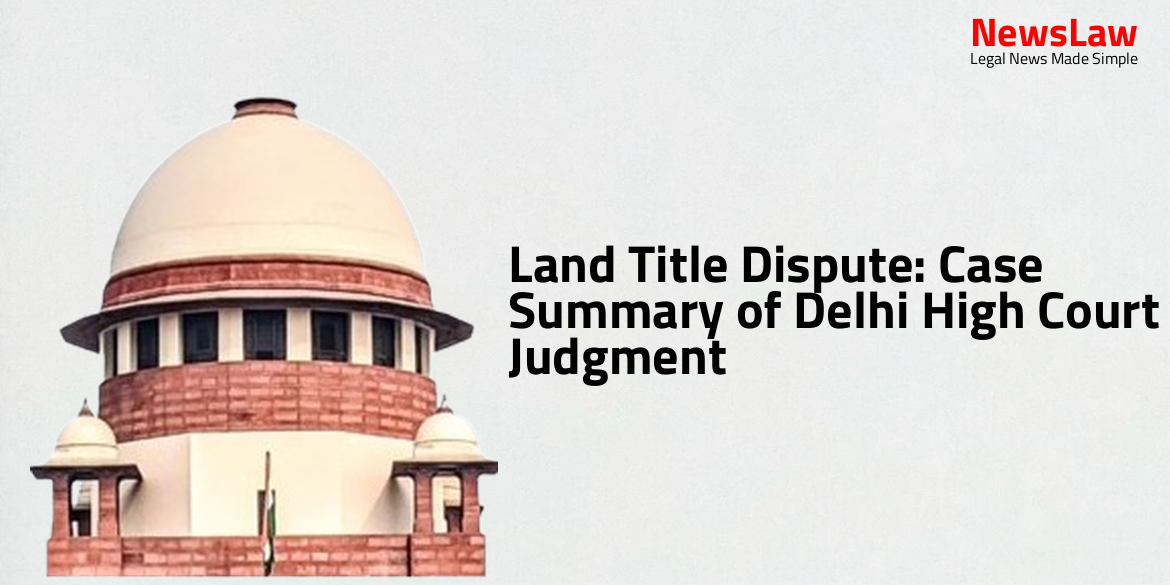Explore a detailed legal analysis provided by the court in a recent case concerning a marriage validity dispute. The court’s decision centered around the limitations of amending pleadings during ongoing proceedings, particularly in matrimonial cases governed by specific Acts. This blog highlights the importance of understanding the legal framework and jurisdictional boundaries when dealing with marriage-related disputes, shedding light on the complexities involved in such legal proceedings.
Facts
- The High Court dismissed the writ petition (SCA No 11379/2018) filed by the original writ petitioner.
- The High Court allowed SCA No 16101/2018 and quashed the order passed by the Family Court on 8.5.2018.
- The Family Court had partly allowed the application (Exhibit 281) by permitting certain amendments to the written statement.
- The appellant-wife was allowed to incorporate paras 35 and 36 in the written statement but was refused to amend as per para 37.
- The appellant has now filed appeals against the High Court’s decision.
- The appellant-wife filed an application seeking amendment in her written statement to include that the respondent-husband had married another woman, Hinaben Manubhai Panchal, on 14.12.2006.
- The respondent-husband filed a Hindu Marriage Petition for dissolution of marriage citing cruelty by the appellant-wife.
- The appellant-wife alleged that the respondent-husband openly cohabited with, moved around, and traveled abroad with the new woman, introducing her as his wife.
- The respondent-husband stated that the new woman, Hinaben Manubhai Panchal, was a manager in his hospital and her role had no relevance to the dispute between the parties.
- The appellant-wife contended that the respondent-husband’s desire to marry the new woman led to the fabricated cruelty allegations.
- The appellant-wife ceased practicing as a doctor after the birth of their child and remained a housewife reliant on the respondent-husband for maintenance.
- The appellant-wife sought for the declaration of the marriage between the petitioner and Hinaben Panchal as illegal, void, and voidable, alongside declaring their child as illegitimate.
- The cause of action for the counter claim application is ongoing until the legality of the marriage between the petitioner and Hinaben Panchal is determined.
- The respondent-husband filed a rejoinder affidavit in response to the counter claim application.
Also Read: Legal Analysis on Conviction Based on Sole Testimony of Prosecutrix
Arguments
- Opponent argues that the marriage between the petitioner and Hina Manubhai Panchal is still ongoing, with no divorce being granted despite the petitioner’s subsequent marriage to Hina Panchal.
- The opponent asserts that the marriage between the petitioner and Hina Manubhai Panchal is illegal, void, and voidable, and seeks a declaration from the court to this effect.
- It is argued that the proviso to Order VI Rule 17 of the CPC limits the discretion to allow amendments during the trial.
- The burden of proof lies with the party seeking an amendment after the trial has commenced to show that despite due diligence, the proposed averment could not have been made earlier.
- Legal precedents cited by the opponent include cases like Ajendraprasadji N. Pandey v. Swami Keshavprakeshdasji N., M. Revanna v. Anjanamma, Chander Kanta Bansal, and Vidyabai v. Padmalatha.
- Section 10 of the Family Courts Act, 1984, and Section 21 of the Hindu Marriage Act, 1955, ensure that the provisions of the CPC apply to proceedings under the HMA, invoking the proviso to Order VI Rule 17 of the CPC.
- The opponent argues that the cause of action for the counterclaim arose when the petitioner entered into a second marriage with Hinaben Manubhai Panchal.
- It is contended that the petitioner’s second marriage to Hinaben Panchal constitutes fraud against the respondent, rendering the provisions of limitation inapplicable in this case.
- Section 23A of the Hindu Marriage Act allows the respondent to raise a counter claim against the petitioner on grounds of adultery, cruelty, or desertion.
- The respondent can seek relief under Sections 9 to 13 of the HMA, 1955.
- The appellant-wife sought to amend the written statement to include details about the respondent’s second marriage, which she became aware of during cross-examination in the ongoing proceedings.
- The High Court rejected the appellant’s application for amendment based on the belated stage of the proceedings.
- The appellant-wife’s amendment application was primarily to seek a declaration that the marriage between the respondent and a third party is null and void, which falls under the Special Relief Act.
- The appellant-wife argued that the delay in filing the amendment application was justified due to the timing of when she became aware of the second marriage.
- The High Court suggested that a separate suit could be filed for declaring the second marriage void.
- The respondent-husband’s relationship with the third party, resulting in a child, was a significant point in the counter claim requested by the appellant-wife.
- The appellant-wife’s counsel emphasized that the counter claim was essential in the ongoing proceedings as it pertained to the legitimacy of the marriage between the appellant and the respondent.
Also Read: Legal Analysis on Concurrent Sentences in Drug Trafficking Cases
Analysis
- The appellant sought an amendment to incorporate a counter claim under Section 23 of the Hindu Marriage Act.
- The High Court partially allowed the amendment in the written statement but refused further relief not permitted under the Hindu Marriage Act.
- The High Court cited Order VI Rule 17 CPC to reject the further amendment sought.
- The appellant’s only recourse for additional reliefs would be to file a separate suit.
- The High Court dismissed the application for amendment based on Order VI Rule 17 CPC and Order VIII Rule 6A CPC.
- The High Court’s decision was based on the limitation to amend pleadings after trial commencement.
- The appellant’s claim regarding the respondent’s marriage with a third party was not permissible under the provisions of the Hindu Marriage Act for a counter-claim.
- The refusal of amendment for the counter-claim by the High Court was based on the restrictions of the Act.
- The High Court’s rejection of the amendment for the counter-claim was found to be unjustified as per the facts presented in the case.
- The appellant’s attempt to claim relief through counter-claim beyond the scope of the Hindu Marriage Act was not permissible.
- In any proceeding for divorce, judicial separation, or restitution of conjugal rights, the respondent can oppose the relief sought based on adultery, cruelty, or desertion.
- The respondent can also make a counter-claim for relief under the Hindu Marriage Act on the grounds of petitioner’s adultery, cruelty, or desertion.
- If the petitioner’s adultery, cruelty, or desertion is proven, the court may grant the respondent relief as if they had filed a petition seeking such relief.
- The respondent can seek relief under Section 9 (Restitution of conjugal rights), Section 10 (Judicial separation), Sections 11 & 12 (Declaration of void marriage), and Section 13 (Divorce) through a counter-claim only.
- The respondent can amend their pleadings and file a counter-claim during the proceedings for divorce or judicial separation as per Order VI Rule 17 CPC.
- Matrimonial Court does not have jurisdiction to determine the validity of divorce obtained by husband from community Panchayat based on custom
- Civil Courts have jurisdiction to try suits of civil nature, unless their cognizance is expressly or impliedly barred
- The Act is a complete code creating new rights for aggrieved spouse to seek various reliefs like restitution of conjugal rights, judicial separation, nullity of marriage, and divorce
- Petitions under the Act must be presented to the District Court where the cause of action arose
- The Act does not provide for relief related to declaration of dissolution of marriage obtained through custom or usage from community Panchayat
- The Act dealing with matrimonial disputes among Hindus does not provide for adjudication of claims or defenses where the marriage has already been dissolved by a private forum like the Panchayat.
- Adjudication in such cases can only be obtained from the Civil Court and not the matrimonial Court under the Act.
- The decision of the Rajasthan High Court is in full agreement with this view.
- The present appeals succeed partially as the judgment of the High Court is quashed and set aside.
Also Read: Legal Jurisdiction and Award Finality in Arbitration Dispute
Decision
- The appellant’s amendment request in para 37 is dismissed.
- The Family Court’s order dated 8.5.2018 in application (Ex.281) is reinstated.
- The appellant is allowed to amend the written statement as requested in paras 35 and 36.
- The appellant is granted the option to file a substantive suit or pursue other available remedies concerning the prayer in para 37.
- The appeals are partially allowed as per the above decisions.
- No costs are awarded in the present case.
Case Title: NITABEN DINESH PATEL Vs. DINESH DAHYABHAI PATEL (2021 INSC 629)
Case Number: C.A. No.-005901-005902 / 2021



